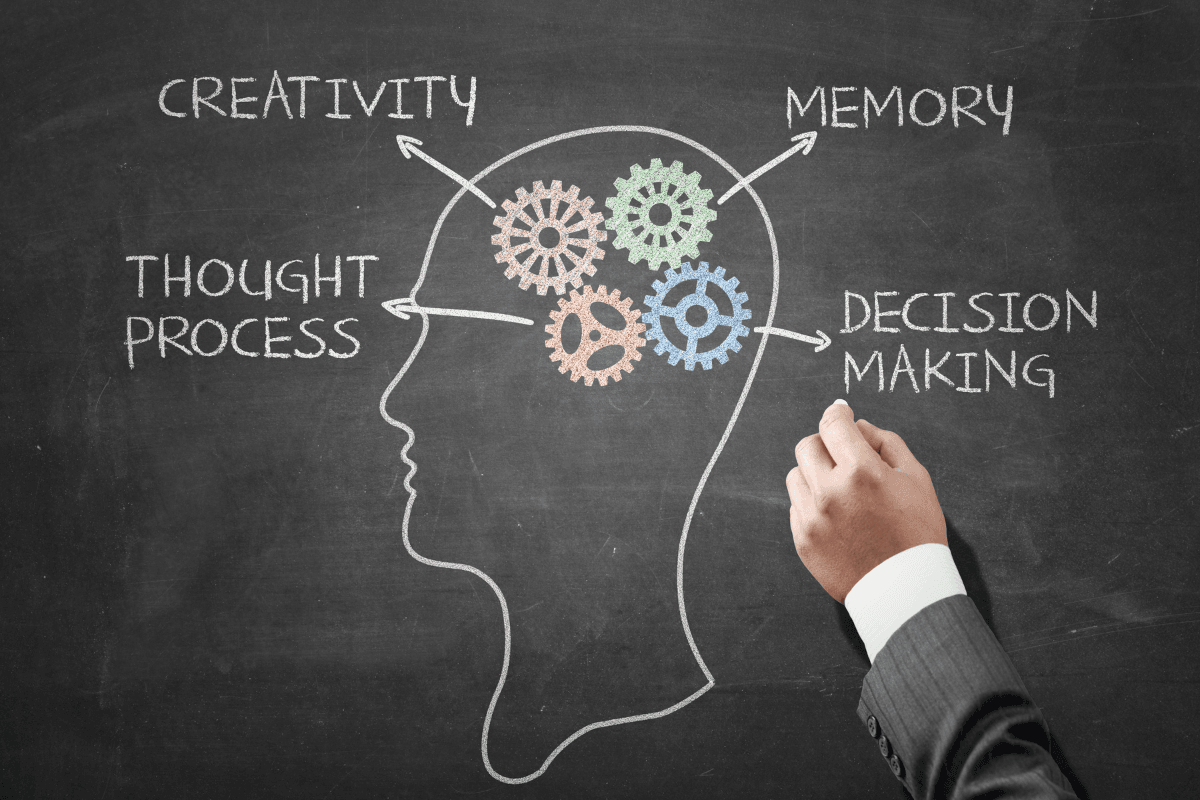Great leaders are not only strategic thinkers but also emotionally intelligent individuals. By understanding their own emotions and how they impact others, leaders can build trust, navigate challenges with confidence, and inspire their teams to achieve remarkable success.
In this post, we’ll explore how leading with emotional intelligence through self-awareness can significantly boost leadership effectiveness. You’ll discover practical strategies to enhance these skills and see why they’re essential for anyone looking to lead with impact in the modern workplace.
Learn More About Emotional Intelligence in Leadership
Understanding Self-Awareness and Emotional Intelligence

Self-awareness is the ability to recognize and understand your own emotions and their impact on your behavior. For leaders, this means:
- Recognizing Emotions: Leaders need to identify their own emotions and understand how these feelings influence their decision-making and leadership style. For instance, a leader who feels frustrated during a meeting might react defensively, impacting team morale.
- Managing Emotions: Effective leaders manage their emotions, responding thoughtfully to challenges rather than reacting impulsively. This helps in maintaining composure during high-pressure situations, fostering a more stable and thoughtful work environment.
Developing strong emotional intelligence begins with this deep self-awareness. By understanding their own emotional landscape, leaders can handle their interactions more skillfully, leading to better decision-making and improved leadership outcomes.
The Link Between Self-Awareness and Emotional Intelligence
Self-awareness is essential for building emotional intelligence. When leaders understand their own emotions, they are better equipped to empathize with others.
For example, a leader who knows they become anxious under pressure can work to stay calm, which helps them support their team more effectively during stressful times. This self-awareness allows leaders to recognize their emotional triggers and understand how their feelings affect their interactions.
As a result, they develop a higher emotional intelligence, improving their ability to connect with their team and navigate interpersonal dynamics more effectively.
The Role of Emotional Intelligence in Leadership

Emotional competence is vital for making effective leadership decisions. Leaders who manage their emotions well can navigate stressful situations with greater ease and make more balanced choices. For example, a leader who stays calm during a crisis can think clearly and guide their team more effectively.
Leaders with high emotional intelligence can also build stronger relationships with their teams, handle conflicts with finesse, and foster a positive work environment. Their ability to lead with emotional insight helps in creating trust and enhancing overall team performance, which is crucial for long-term success.
One study showed that emotionally intelligent leaders significantly enhance team behaviors and business results, positively influencing work team performance and employee attitudes
Emotional Intelligence Quotient: What it Means for Leaders
Emotional Intelligence Quotient (EQ) is a critical measure of a leader’s ability to recognize, understand, and manage both their own emotions and those of others.
Unlike traditional IQ, which focuses on cognitive abilities, EQ assesses how well leaders handle emotional information and apply it in their interactions.
EQ is composed of several key components:
- Self-Awareness: The ability to recognize your own emotions and understand their impact. For example, a leader who feels frustrated after a challenging project can identify this emotion and reflect on how it influences their interactions with the team.
- Self-Regulation: The skill to manage your emotions in healthy ways. A leader who remains calm and composed during a crisis, rather than panicking, demonstrates strong self-regulation.
- Empathy: The capacity to understand and share the feelings of others. For instance, a leader who notices a team member’s distress and offers support shows high empathy.
- Social Skills: The ability to manage relationships and communicate effectively. A leader who navigates team conflicts smoothly and fosters collaboration exhibits strong social skills.
How High EQ Contributes to Leadership Success
- Navigating Social Complexities: Leaders with a high EQ are adept at managing interpersonal relationships and understanding social dynamics within their teams. For example, they can detect underlying tensions in team meetings and address them proactively, which helps maintain a harmonious work environment.
- Understanding Team Dynamics: High EQ leaders can read and respond to the emotional climate of their teams. They recognize when morale is low and take steps to boost it, such as through recognition and support. This insight into team dynamics helps in making informed decisions that align with the team’s needs and emotions.
- Leading with Empathy: Leaders with high emotional competence are skilled at empathizing with their team members. For instance, a leader who notices a team member struggling with personal issues and offers flexible working arrangements demonstrates empathy, which can significantly increase loyalty and engagement.
- Enhancing Overall Effectiveness: By managing their own emotions and understanding those of others, high EQ leaders create a positive work environment where team members feel valued and motivated. This contributes to better performance, higher job satisfaction, and improved team cohesion.
Strategies to Develop Self-Awareness and Emotional Intelligence

To build self-awareness and enhance emotional competence, consider using these practical tools and techniques:
Self-Assessment Techniques for Leaders
Leadership self-assessment is a practical way for leaders to evaluate their self-awareness. Here are some effective tools and techniques:
- Journaling: Regularly document your thoughts and feelings. This practice helps you recognize emotional patterns and triggers, allowing you to understand how your emotions impact your decisions and interactions.
- 360-Degree Feedback: Obtain feedback from colleagues, team members, and supervisors. This comprehensive view offers valuable insights into how others perceive your behavior and its effects on the team, helping you identify areas for improvement.
- Self-Reflection: Set aside time to reflect on your decisions and reactions. Analyze situations where you felt strong emotions to understand what led to these feelings and how you can handle similar situations better in the future.
Regular self-assessment helps in developing emotional competence by highlighting strengths and areas that need attention. It leads to continuous improvement in leadership by fostering a deeper understanding of oneself.
Enhancing Emotional Intelligence
To improve your emotional competence, leaders can use these actionable strategies:
- Empathy Practice: Actively work to understand and share the feelings of others. For example, when a team member is struggling with a project, acknowledge their challenges and offer support, which builds trust and strengthens team relationships.
- Active Listening: Fully focus on what others are saying without interrupting or preparing your response while they speak. This approach improves communication, shows respect, and helps in better understanding team members’ perspectives.
- Emotional Regulation: Use techniques like deep breathing, mindfulness, or taking short breaks to manage your emotions effectively. This helps you stay calm and make more thoughtful decisions, especially in high-pressure situations.
By enhancing these skills, leaders can achieve high emotional competence and improve leadership effectiveness, creating a more positive and productive work environment.
Common Challenges and How to Overcome Them

It’s natural to face challenges to build emotional intelligence. Understanding these common obstacles and knowing how to address them through incremental changes is key to improving your leadership effectiveness.
Signs of Lacking Emotional Intelligence in Leadership
Low or lack of emotional intelligence in leadership can manifest in several ways:
- Poor Communication: Leaders may struggle to convey their ideas clearly or misunderstand others’ messages. For example, a leader who often gives vague instructions can cause confusion and inefficiencies within the team.
- Frequent Conflicts: Lack of emotional skills can lead to frequent disputes or unresolved conflicts among team members. For instance, a leader who reacts defensively to criticism may escalate disagreements instead of resolving them.
- Lack of Empathy: When leaders fail to recognize or consider their team’s emotions, they miss out on important cues for motivation and support. For example, a leader who doesn’t acknowledge a team member’s burnout might exacerbate the issue, reducing overall productivity.
These issues can damage team dynamics and hinder effective leadership. Leaders struggling with emotional competence often face difficulties in motivating their teams and managing stress, which can lead to decreased morale and productivity.
Overcoming Obstacles to Building Emotional Competence
Common barriers to developing emotional competence include:
- Difficulty with Self-Regulation: Managing one’s emotions effectively can be challenging, especially under stress. A leader who frequently reacts impulsively or with frustration may struggle to maintain a calm and composed demeanor.
- Resistance to Feedback: Some leaders might resist feedback due to defensiveness or a fear of criticism. For instance, a leader who dismisses feedback on their management style may miss growth opportunities.
To overcome these obstacles, leaders can adopt the following strategies:
- Self-Reflection: Regularly assess your emotional responses and behaviors. Reflect on past interactions to identify patterns and areas for improvement. For example, after a stressful meeting, take a moment to consider how your emotional state influenced your responses and decisions.
- Seeking Feedback: Actively seek constructive feedback from colleagues and mentors. This helps you gain different perspectives on your behavior and its impact, allowing you to make necessary adjustments. For example, ask for feedback on your communication style and use it to refine how you engage with your team.
- Practicing Emotional Regulation: Use techniques such as deep breathing, mindfulness, or cognitive restructuring to manage your emotions. For example, before entering a high-stakes meeting, practice deep breathing to maintain a calm and focused mindset.
By addressing these challenges and implementing these strategies, leaders can enhance their emotional intelligence and leadership effectiveness and foster a more positive and productive work environment.
Activating Leadership Excellence through Emotional Intelligence
To truly excel in leadership, harnessing self-awareness and emotional intelligence skills are essential. These skills not only enhance effective leadership but also pave the way for transformative success. By understanding and managing your emotions, you foster better decision-making, stronger team dynamics, and a more positive work environment.
Start your journey towards greater leadership impact by using tools like leadership self-assessment and focusing on developing emotional competence. Dive deeper into available resources, courses, and books on leadership training to further enhance your skills.
For personalized guidance and transformative coaching, partner with Buttimer Consulting. We specialize in helping leaders unlock their full potential and drive meaningful change within their teams and organizations.
Contact us at (404) 949-9500 or schedule a discovery call to learn how we can support your leadership journey and create impactful results. Let Buttimer Consulting be your catalyst for growth and excellence.









